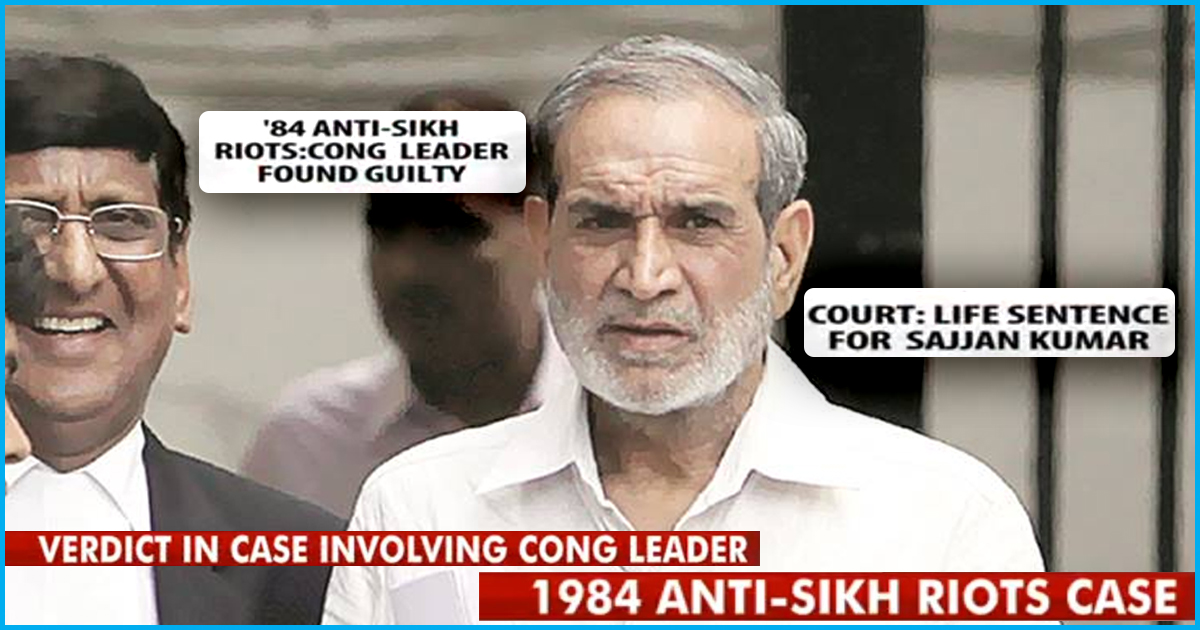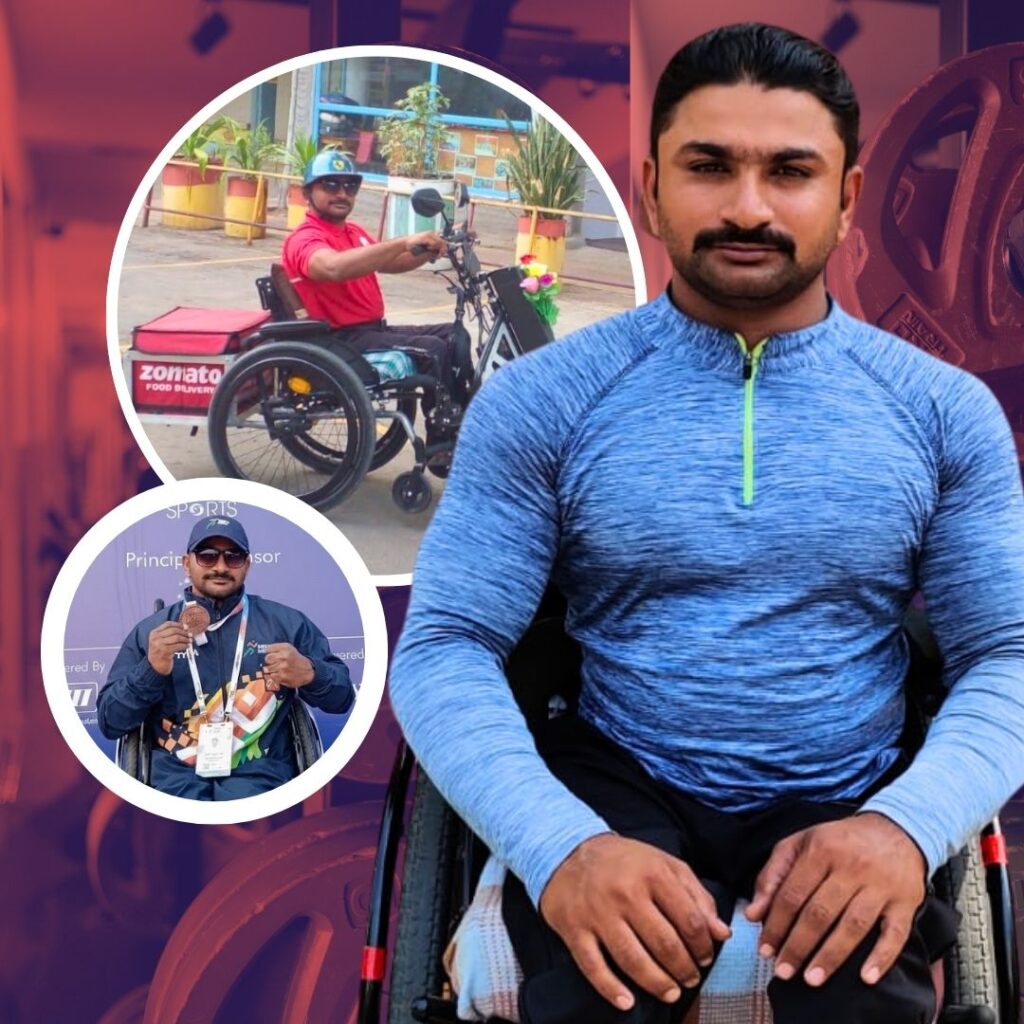Congress leader Sajjan Kumar, who was an accused in the 1984 Sikh riots case, has been held guilty by the Delhi High court and has been awarded a life sentence. Earlier, he was acquitted by a court.
This judgement comes at a time when Kamal Nath, another Sikh riot accused, took oath as the 18th Chief Minister of Madhya Pradesh. Kamal Nath was present at the Rakab Ganj Sahib Gurdwara where a mob caused riots and burnt two men alive. It is also reported that he seemed to have given directions to the mob which unleashed an attack on the Gurdwara.
Life imprisonment for Sajjan Kumar
73-year-old Sajjan Kumar was found guilty of killing five members of a family in Raj Nagar, Delhi. He has been asked to surrender by December 31 and has been instructed to not leave the city.
“It is important to assure the victims that despite the challenges truth will prevail,” the High Court said. The court referred to the courage of Jagdish Kaur, the victim who fought against Sajjan Kumar and others. “The aftershock of those atrocities is still being felt,” said the court, reported NDTV.
While eyewitness accounts have accused various Congress leaders at the heart of the riot, Sajjan Kumar is the only one who has been convicted. A former Congress councillor, Balwan Khokhar, retired naval officer Captain Bhagmal and three others were convicted in Raj Nagar case by a trial court in 2013 and Sajjan Kumar was acquitted. The convicted challenged the decision.
“In the summer of 1947, during partition, several people were massacred. 37 years later Delhi was the witness of a similar tragedy. The accused enjoyed political patronage and escaped trial,” said the court while reading out the judgement.
Delhi HC: The mass killings of Sikhs between 1st and 4th November 1984 in Delhi and the rest of the country, engineered by political actors with
the assistance of the law enforcement agencies, answer the description of "crimes against humanity‟.— ANI (@ANI) December 17, 2018
The court further observed, “It was an extraordinary case where it was going to be impossible to proceed against Sajjan Kumar in a normal scheme of things as there appeared to be ongoing large-scale efforts to suppress cases against him by not even recording them.”
Nirlep Kaur, a daughter who saw her father being burnt alive in front of her eyes, broke down and thanked the court for delivering justice after 34 years. Delhi CM Arvind Kejriwal said, “It has been a very long and painful wait for innocent victims who were murdered by those in power”. He further added, “Nobody involved in any riot should be allowed to escape no matter how powerful the individual maybe.”
1984 Sikh riot
On November 1, 1984, a day after Indira Gandhi was assassinated and her body laid at the Teen Murti Bhavan for darshan, a frenzied mob rushed towards the closest Gurdwara in the vicinity-Rakab Ganj Sahib Gurdwara. The mob was chanting slogans of “Khoon ka Badla Khoon (blood for blood)”.
It was reported that additional commissioner of police for New Delhi range Gautam Kaul stood beside the policemen, absolutely static, even as the mob progressed towards the Gurdwara. More than 2,800 innocent Sikhs were murdered. They were looted and had their property destroyed.
The violence took place all over the country, but most of the damage was caused in Delhi. Women were brutally raped and people were dragged out of their houses and burnt alive. The mob carried weapons like knives, clubs, iron rods and combustible material. They stepped into Sikh neighbourhoods and killed any Sikh they came across and destroyed their houses and shops.
The perpetrators stopped buses in order to pull out Sikh passengers and lynch them. Buses were set on fire and people burnt alive. Survivors of the riots say the nightmare continued even when they were taken into refugee camps, meant to shelter and look after them.
The effects of the 1984 riots were felt long after the violence came to a halt. Survivors talk of the way the events impacted the future of children in the community, many of whom could not be educated since their parents had died or been robbed to such an extent that they could no longer afford to send them to school. Marriages, too, became difficult since people had been looted to such an extent they were struggling just to survive, they said.












